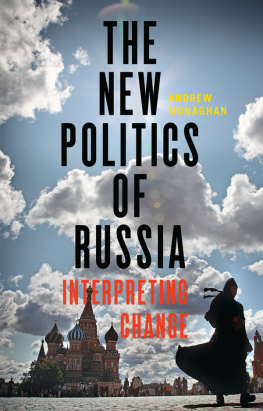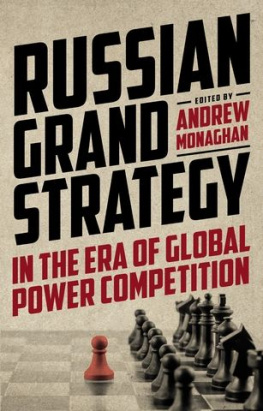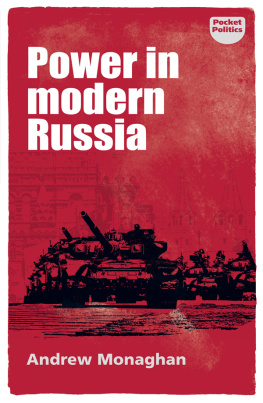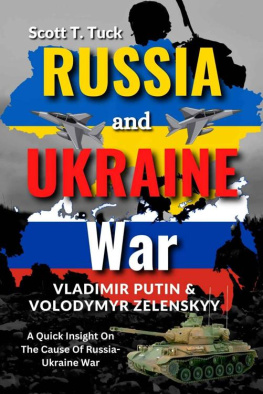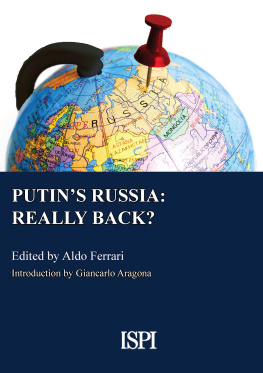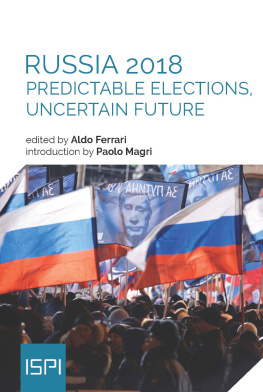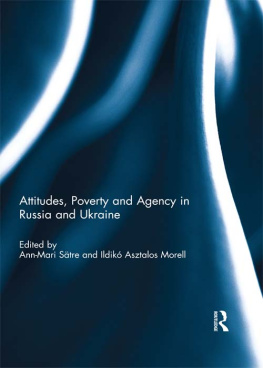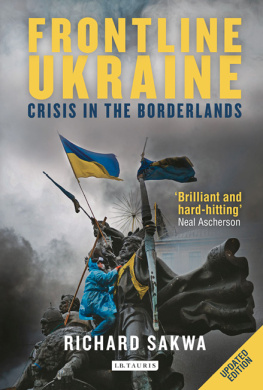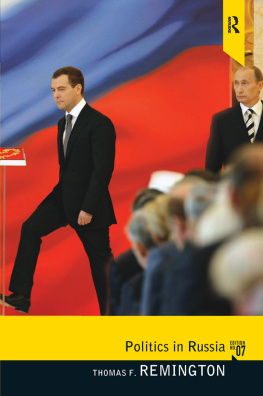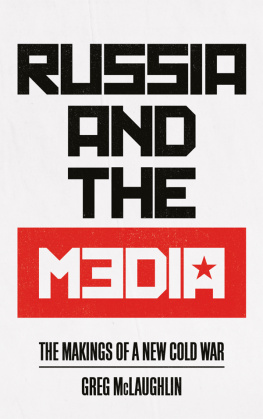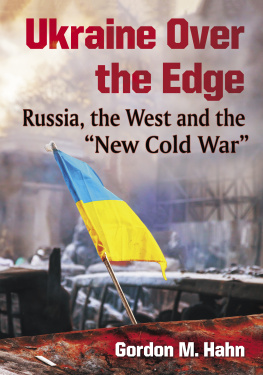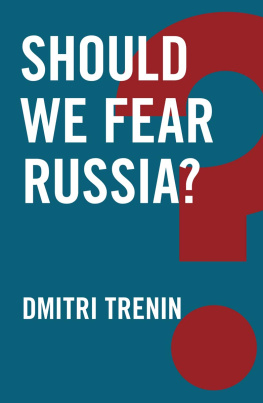Copyright Andrew Monaghan 2016
The right of Andrew Monaghan to be identified as the author of this work has been asserted by him in accordance with the Copyright, Designs and Patents Act 1988.
Published by Manchester University Press
Altrincham Street, Manchester M1 7JA
www.manchesteruniversitypress.co.uk
British Library Cataloguing-in-Publication Data
A catalogue record for this book is available from the British Library
Library of Congress Cataloging-in-Publication Data applied for
ISBN 978 1 784 99404 4 hardback
ISBN 978 1 784 99405 1 paperback
ISBN 978 1 784 99763 2 open access
First published 2016
An electronic version of this book is also available under a Creative Commons (CC-BY-NC-ND) licence.
The publisher has no responsibility for the persistence or accuracy of URLs for any external or third-party internet websites referred to in this book, and does not guarantee that any content on such websites is, or will remain, accurate or appropriate.
Typeset by Out of House Publishing
Weve moved on, Senior British official, 2011.
I dont understand why you dont understand, Senior Russian official in discussion with Western officials, 2009.
We often come up against the failure to understand our position and sometimes even an unwillingness to understand, Vladimir Putin, Direct line with Vladimir Putin, 17 April 2014. http://en.kremlin.ru/events/president/news/20796.
One of the biggest delusions of the West has been that Russians are white. If we were black or blue, or dots, the West couldnt misunderstand Russians so much. But because were white by race, they think were the same as Europeans, Andrey Konchalovsky, A meeting with Andrey Konchalovsky: Part II, 27 June 2011. www.opendemocracy.net/node/60162/author/gerard-toal.
Evropa ne znaet nas, potomu shto ne khochet znat; ili luchshe skazat znaet tak, kak znat khochet [Europe does not know us, because it does not want to know; or better to say, it knows us as it wants to], Nikolai Danilevsky quoted in L. Kostromin, Moya zhizn razvedka [My Life as a Spy] (Moscow: Detektiv Press, 2014), p. 284.
I have a feeling that the situation which really exists in this country and the interpretations of the situation from the outside exist in some different, parallel worlds, Dmitri Medvedev, 22 January 2014; Interview with Ammanpour, http://government.ru/news/9868.
To many Western observers, Russia and the Russians defy logic. Russia appears as a country of incongruity, and the actions and decisions of its leaders can seem irrational, whether they be about providing succour and support for the leaderships of Iran or Syria when it would appear more logical for Russias development to improve partnership with the West, or holding the Winter Olympic Games in the Black Sea resort of Sochi.
This defying of logic tends to be emphasised by the high drama, even epic nature of the Russian story. Against the backdrop of the collapse of the Soviet Union and the widespread hope for a more democratic Russia and partnership with the West, a struggle has played out between heroes and villains, saints and sinners, embellished by extraordinarily wealthy oligarchs and the Committee of State Security (KGB), protesting liberals against established authorities, and of conspiracy theories, scandals, spies and war.
At the same time, as one American observer has stated, the West has a painfully uneven track record of interpreting, let alone navigating developments in Russia during the Putin era. and there is a persistent sense of surprise as expectations are confounded and the Russian leadership keeps the West guessing about its intentions and actions.
This can be attributed partly to the point that Russia is a museum of contradictions.
When attention is paid to Russia, it often suffers from a strong ethnocentrism the imposition of Western national points of reference onto Russia combined with a sense of the progressive march of history.
Consequently, Western observers often find themselves bound by Russian contradictions of their own making, and their discussion about Russia has become lost in a series of confusing mazes and dead ends. Russia has appeared simultaneously to be resurgent and declining, a partner and a competitor; there is confusion over the Russian leadership, particularly whether Putins leadership is strong and likely to last for a long time, or weak and likely to come to an end soon. Russia becomes abstracted to Russia, framed by Western points of reference with the result that the Western officials and observers often get Russia wrong.
Getting Russia right, however, matters. It matters because of Russias status as a permanent member of the United Nations Security Council, its great natural resource wealth, and its evolving military capability (particularly its nuclear weapons). This array of assets is accentuated by Russias great size, which makes it a ubiquitous player in regions across the world in Europe, the Caucasus, Central Asia, Asia-Pacific and the Arctic, and by the efforts of the Russian leadership to turn Russia into an indispensable partner, one without whose participation major international questions, from conflict management and arms control to energy security and the architecture of international relations, cannot be addressed. To this end, the Russian leadership is investing vast resources to address its many internal problems and to retool its military, and to reach out across the world to establish or reinvigorate relationships with states and multilateral organisations from the Asia-Pacific region to Latin America.
Russia matters specifically to the West because since the mid 1990s, it has become a major partner, both as an energy supplier to the EU and for Western businesses. Additionally, as often stated by senior Western leaders, the West and Russia face many common problems and questions, from international terrorism to conflict resolution and the spread of weapons of mass destruction. Given its political influence and geographical location, Russia has an important role to play in many of the regional political and security questions that the West faces.
To be sure, there are serious long-term problems in Russia, including a struggling economy that relies on natural resources exports and demographic problems. Some critics argue that Russia is in strategic decline and that Russias strategic outlook to 2050 is a negative one. And some suggest that the numerous disagreements between the West and Russia mean that the West should look elsewhere to develop partnerships to address solutions to international problems. Russia, the argument goes, does not matter because it does not act like a partner, nor does it demand prioritisation as a problem: it is merely a declining regional power.
These objections, though debatable, are important. But they miss the point. It is a one-eyed strategic outlook that only addresses the distant (and unpredictable) future: strategy is a dialogue with the current context and the immediate future. This is all the more true for the EU and NATO and many of their member states, given that they neighbour Russia.
Russia matters whether it is a partner, or, as seems more likely, a competitor. Indeed, the war in Ukraine that began in 2014 has illustrated that Russia matters because of the influence it wields

